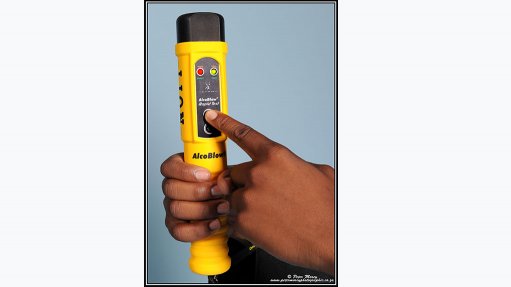Danger posed by lithium-ion batteries in cargo highlighted
The International Air Transport Association (Iata) remains concerned about the irregular transport of lithium-ion (Li-ion) batteries on commercial aircraft. Although almost ubiquitous, found in every cellphone, tablet, notebook and laptop device, and in many other applications, Li-ion batteries are actually officially classified as dangerous goods, and for good reason.
Li-ion batteries can be a fire hazard, and, when transported in bulk, and in inappropriate or inadequate packaging, a fire can spread from battery to battery and engulf an aeroplane and cause it to crash, with fatal consequences. As a result, international aviation regulations forbid the transport of Li-ion batteries as cargo on passenger airliners.
However, there is a particular problem with Li-ion batteries. “Typically, people who ship dangerous goods are in the dangerous goods business,” observes Iata assistant director: cargo safety and standards David Brennan. They know what they are doing and they can be relied on to observe all the safety standards and regulations, including the correct labelling and classification of their products. But many of those who ship Li-ion batteries do not realise that these are classified as dangerous goods, or, worse, do not even care.
These situations are the result of, in the first case, the ubiquity of Li-ion batteries in the modern world and, in the second, unscrupulous manufacturers of low-quality counterfeit batteries seeking to exploit the enormous global demand for these products. Thus, there are many legitimate manufacturers who ship products containing Li-ion batteries without really being conscious of the fact. A random example Brennan cites is the ebike. How on earth can ebikes be dangerous cargo? But they contain Li-ion batteries, a fact that is rarely prominent in the minds of their makers and shippers. Moreover, bike makers are often genuinely unaware that Li-ion batteries are classified as dangerous goods, as the regulations on the transport of dangerous goods are far beyond their previous experience and knowledge.
On top of all this, there is the problem caused by ecommerce, which allows small businesses, with zero knowledge of dangerous goods and safety protocols, to do trade globally. They can and do inadvertently ship products that are classified as dangerous (but which do not appear, to the lay person, to be dangerous) in the most inappropriate ways – even in the mail.
So Iata is working hard to rectify this situation. As the industry association of the world’s airlines, there is only so much it can do. But, Brennan assures, it is trying to make contact with the manufacturers of these new dangerous goods. “It is about outreach; it is about engagement,” he says – Iata has never before needed to make much contact with the producers of the cargoes its members fly. The actors with which Iata has long and very close contact are, apart from the airlines themselves, freight forwarders and government agencies. And, in the interim, the association is working to raise their awareness of the problem.
Part of this process is the holding of workshops around the world, including in Africa. These are serving to educate and inform companies and the relevant government agencies on the latest standards regarding dangerous goods, especially Li-ion batteries, and the latest technologies that can be used to monitor and detect them.
A problem, but also an opportunity, is that, until now, aviation safety and aviation security have been largely separate and independent of each other. Dangerous goods are a safety matter. Aviation security is concerned with preventing the smuggling on to aircraft, whether as cargo, luggage, or carried by passengers, materials that can be detonated and so destroy the airliner.
As a consequence, aviation security agencies make use of technologies and procedures that could also be capable of detecting undeclared dangerous goods such as Li-ion batteries. The most obvious example is X-raying cargoes before they are loaded onto aircraft. But there are other technologies also in use. However, all are focused on finding what are technically called improvised explosive devices.
Comments
Press Office
Announcements
What's On
Subscribe to improve your user experience...
Option 1 (equivalent of R125 a month):
Receive a weekly copy of Creamer Media's Engineering News & Mining Weekly magazine
(print copy for those in South Africa and e-magazine for those outside of South Africa)
Receive daily email newsletters
Access to full search results
Access archive of magazine back copies
Access to Projects in Progress
Access to ONE Research Report of your choice in PDF format
Option 2 (equivalent of R375 a month):
All benefits from Option 1
PLUS
Access to Creamer Media's Research Channel Africa for ALL Research Reports, in PDF format, on various industrial and mining sectors
including Electricity; Water; Energy Transition; Hydrogen; Roads, Rail and Ports; Coal; Gold; Platinum; Battery Metals; etc.
Already a subscriber?
Forgotten your password?
Receive weekly copy of Creamer Media's Engineering News & Mining Weekly magazine (print copy for those in South Africa and e-magazine for those outside of South Africa)
➕
Recieve daily email newsletters
➕
Access to full search results
➕
Access archive of magazine back copies
➕
Access to Projects in Progress
➕
Access to ONE Research Report of your choice in PDF format
RESEARCH CHANNEL AFRICA
R4500 (equivalent of R375 a month)
SUBSCRIBEAll benefits from Option 1
➕
Access to Creamer Media's Research Channel Africa for ALL Research Reports on various industrial and mining sectors, in PDF format, including on:
Electricity
➕
Water
➕
Energy Transition
➕
Hydrogen
➕
Roads, Rail and Ports
➕
Coal
➕
Gold
➕
Platinum
➕
Battery Metals
➕
etc.
Receive all benefits from Option 1 or Option 2 delivered to numerous people at your company
➕
Multiple User names and Passwords for simultaneous log-ins
➕
Intranet integration access to all in your organisation


















